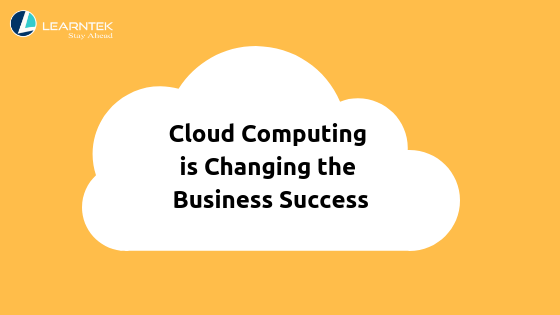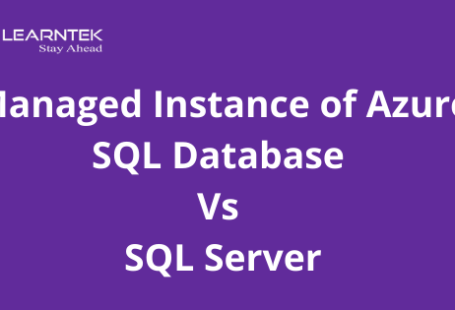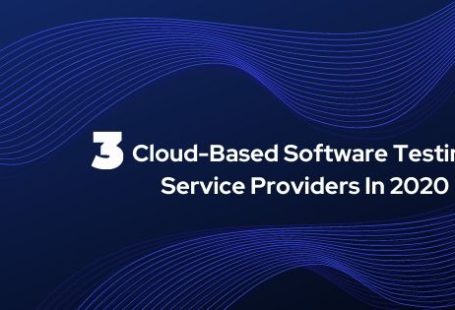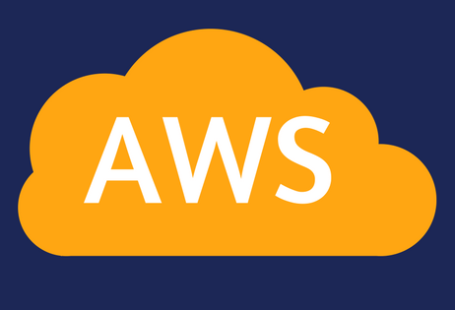Cloud Computing is Changing the Business Success
Hey! I left that file on my computer. I will have to send it to you when I get back to office. Nowadays it sounds weird. Everything we do is on the cloud. Our favourite music and movies are streamed online. Even the notes we keep on our phones, most of which are about as important as a grocery list, are backed up and accessible on the cloud from anywhere.
Cloud computing has fundamentally changed the way we work and communicate.
In the business world, this improved level of communication has led to all sorts of new expectations—good and bad.
Cloud Computing – Introduction:
Cloud computing is one of the newest technological developments to shake up the business world. As more companies migrate their data and applications to the cloud, business itself changes dramatically. Cloud computing has become ubiquitous. Everyday interactions and transactions that take advantage of the Internet are likely operating in a cloud environment, including social media, banking, corresponding with co-workers and clients, and other day-to day functions. Cloud computing is a system which networks devices and stores the data on those devices in a centralised location off-site. The cloud is also a common repository for the collection and analysis of new data, and the place where an increasing number of artificial intelligence operations, like image and speech recognition, are conducted.
How Cloud Computing changing Business Success:
On the cloud, everything is more efficient: It’s green. Cloud computing reduces the need for physical infrastructure and scales to provide efficient use of energy based on real-time requirements. When a major disruption to the network occurs, companies that have moved their systems to the cloud may have an easier time recovering. In-house disruptions can be expensive and time consuming to fix, but cloud providers can provide disaster recovery services.
Scalability on a Corporate Level: The cloud is infinitely scalable, which is essential for the changing data storage needs of the corporate environment. Before the cloud, businesses had to waste time and money upgrading servers and expanding their storage needs. But, with cloud computing, increasing and decreasing storage needs is as easy as contacting the cloud service provider. And, the best part is, the change in data storage is oftentimes instantaneous. Cloud computing makes scalability much easier compared to conventional methods. For instance, like every corporation, your company might need to scale its IT environment as your business climbs the evolutionary ladder. To cope up with this, you may need to have updated apps and software.
Cloud platforms will soon have to compete with the blockchain: There is a new technology in town. If you haven’t heard, blockchain is very quickly disrupting every possible industry. This includes everything from finance to big pharma to the cloud. Right now, the cloud industry is dominated by the big three: Amazon Web Services, Microsoft Azure, and Google Cloud. Because these three massive companies own so much of the space, these centralized companies are the ones setting the prices. What blockchain companies like Akash are doing is leveraging the blockchain to turn the cloud industry into an open marketplace. Price is determined by supply and demand for available computing power.
Cloud costs keep your overhead lean: Lower Operating Costs. Cloud computing saves the corporate world money on two fronts: IT staffing and equipment costs. Because cloud service providers take care of all the maintenance and system updates, it means large businesses can cut their IT budgets in half. Cloud computing services do cost money, but it’s a fraction of the cost of onsite IT services. Likewise, because the cloud’s servers and other related equipment are housed offsite, the corporate world can save money by avoiding expensive equipment upgrades and upkeep.
Computers will become invisible: When people use search engines, they usually don’t realize they are accessing billion-dollar computer networks. As the power of the cloud spreads, one effect will be to make software and computing more invisible, says Dan Reed, vice president of Microsoft’s extreme Computing Group. Your interaction with computers will be more hands free—such as the recent introduction of the Kinect, which allows gamers to eschew controllers and just use gestures and movements that are interpreted by a 3-D camera and infrared detection system. Expect to see more of this type of computer intuition because of the cloud. “You will be able to walk in a room and there could be hundreds of sensors in it that could respond,” Reed says.
If everything is on the cloud, that means more security is required: When data is in the cloud, a breach of the cloud provider’s security compromises the company’s data, and a malfunction of cloud software can result in the loss of data that the company needs. To protect against these problems, companies often invest in preventative measures, such as dataprotection.com online backup. Although storing a massive amount of sensitive data offsite may sound like a security risk, the cloud is one of the most secure forms of data storage available. Because information is stored in the cloud and not the device itself, business data is always secure and accessible, even in the event of theft.
When it lives on the cloud, work never stops: A cloud computing solution gives clients the access to data and applications anywhere and anytime they need. Customers can access the system without compromising functionality and efficiency. Another benefit of using quality cloud computing solution is that it allows your employees more flexibility in their work practices. Doing so will enable them to have access to data from anywhere they are including home, from workplace and even via commute. All they need to do is to connect to the virtual office from wherever they are.
Cloud computing has the potential to become an entirely shared economy: Cloud computing provides smaller companies with the ability to use enterprise applications that they couldn’t otherwise afford. This allows companies to stay on par with their larger competitors from a technology standpoint.
Conclusion:
Cloud computing solution is flexible and powerful, so you need not to invest extra for buying extra hardware to be able to gain more processing power. Cloud computing solution can reduce your expenditures to a real extent. In order to achieve maximum productivity, businesses will have to ensure they have the right hardware and software in place to take advantage of a cloud system. Using a quality cloud storage system will save you cost on IT support equipment. The most evident benefit of using a quality cloud computing system is that allows you to better utilize its network processing speed regardless of the power of your physical hardware. Your cloud computing solutions gets regular updates in terms of functionality, usability and performance. Another benefit of using quality cloud computing solution is that it allows your employees more flexibility in their work practices.






